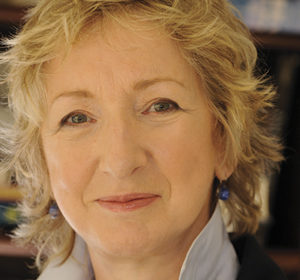Walter Macken’s book Seek the Fair Land came to mind when I chose the cover text to go with the picture of the Sikh man dancing in the St. Patrick’s Day Parade in Dublin.
Macken’s novel centers around Oliver Cromwell’s brutal “ethnic cleansing” of Irish Catholics, who were either killed, or banished “to Hell or to Connaught” (to the barren lands of the West of Ireland or to Barbados as slaves).
It was a terrible time in Irish history, and in sharp contrast to the Ireland of today. Ireland for centuries was a place
of emigration, but has become something of a Promised Land for other nationalities fleeing those very same horrors of poverty and religious persecution that was our story for so long.
Cromwell ultimately failed, thank God, “because the human back is stronger than the oppressor’s whip,” Macken said. The Catholic church triumphed in Ireland, and became a force for education in the United States, moving the Irish immigrants up the first rungs of the ladder of integration and success. But in today’s Ireland the church has gone into decline, its once almighty power done in, some would say, by the thriving economy. There is hope of its resuscitation, however. Ireland’s newest immigrants, the devoutly Catholic Poles and Latvians, have thrown it a lifeline. (“They are like we were in the ’50s,” a visitor from Ireland informed me).
While the Poles are the largest source of inward immigration (over 150,000), followed by immigrants from Lithuania, the Czech Republic and Latvia, it is not just the Central Europeans who are changing the religious and cultural landscape of Ireland.
Muslims, Sikhs, Hindus, and Nigerian Pentecostals are also making their homes now in Ireland. In this issue, we bring you their stories in a special report by
Columbia University’s Graduate School of Journalism.
Naturally, there is much debate as to impact all this inward migration, and problems to be overcome. The “mighty warrior” Sikhs, for instance, are excluded from joining the police force because of a ban on turbans. And, as Sharon Ní Chonchúir writes, asylum seekers living in a former holiday camp in County Meath, have up to a five-year wait for processing; yet, there are signs of hope. The Supreme Court recently ruled that a Nigerian couple could stay in Ireland with their two Irish-born children (unlike the U.S., being born in Ireland does not guarantee you citizenship.)
And there are also some signs of integration. Rotimi Adebaria, a Christian who was forced to leave Nigeria because of religious persecution, became the mayor of the town of Portlaoise in 2007.
All this change is hard to grasp. And especially hard for those of us who left – who are delighted to see the country doing so well, yet miss the Irish bartenders and shop assistants.
But we can expect that Ireland, as a place that has undergone so many demographic shifts since the Vikings first landed in 795, will absorb all this inward migration in a generation or two. As the great American writer John Steinbeck, who identified with his Irish ancestry, wrote, “I’m half Irish, the rest of my blood being watered down with German and Massachusetts English. But Irish blood doesn’t water down very well; the strain must be very strong.”
Meantime, a charming story of Ireland and its immigrants is captured in the Irish movie Once – a love story between two musicians, one Irish, one an immigrant from the Czech Republic.
Made for under $150,000, Once went on to win an Oscar for Best Original Song 2008.
In her acceptance speech Markéta Irglová, the Czech co-star, speaking in a marked Irish accent, said: “The fact that we are standing here tonight – the fact that we can hold this [Oscar] – is proof that no matter how far out your dreams are it’s possible. . . . This song was written from the perspective of hope and hope at the end of the day connects us all no matter how different we are. And so thank you so much to those who helped us along the way.”
Mortas Cine.


Thanks, Ms. Harty, very nicely written article. Here in the Wild West the Impeachment Party (formerly known as the Democrats) drive you mad by confusing immigrants with illegal immigrants or aliens, but that’s another story.
I’ll soon send you a story about a man very prominent in the news – a potential president in 2024 – and who would guess that his mother was Irish. Do you know?
Fondly,
Peadar g